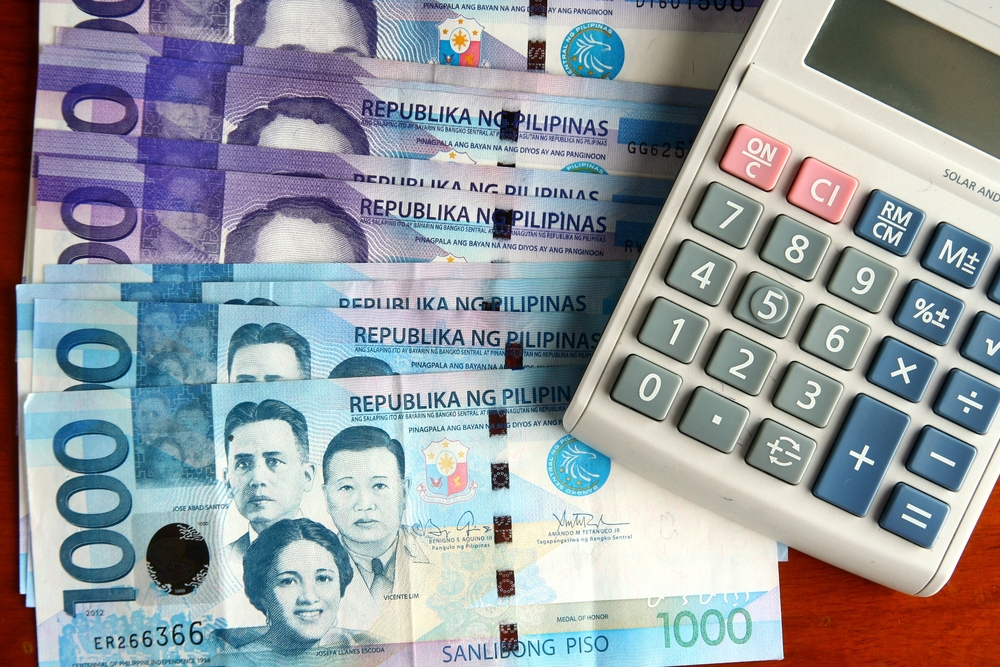Business and Economy
Peso stays firm, local shares down on selling pressures

“The peso’s weakness was tempered by the recent 50 bps rate hike of the BSP,” he said. (Shutterstock photo)
MANILA — The Philippine peso showed its resiliency Friday after ending little changed against the greenback but the Philippine Stock Exchange index (PSEi) succumbed to bearishness.
The local unit finished the week’s trading at 53.135 against the US dollar from Thursday’s 53.09.
Land Bank of the Philippines (Landbank) market economist Guian Angelo S. Dumalagan, in a reply to an e-mail from the Philippine News Agency (PNA), traced the slight weakness of the local currency to investors’ decision to stay on the sidelines ahead of the inflation report from the US Friday night (Manila time). “The peso’s weakness was tempered by the recent 50 bps rate hike of the BSP,” he said.
The Bangko Sentral ng Pilipinas’ (BSP) policy-making Monetary Board (MB) on Thursday increased the central bank’s key rates because inflation is seen to remain elevated until 2019 and to address any second-round effects.
To date, the central bank’s key policy rate is at 4 percent, up by a total of 100 basis points since the start of the year. The MB hiked the BSP’s key rates by 25 basis points each last May and June.
Dumalagan explained that the rate increase this week “should help support the peso, offsetting any downward pressure from a likely upbeat US inflation report, which is seen supportive of another US rate increase in September 2018.”
The Federal Reserve’s Federal Open Market Committee (FOMC) is expected to deliver another rate hike in its meeting on Sept. 25-26 as growth outlook on the US economy continues to remain bright.
Meanwhile, other factors that are forecast to boost the peso’s strength are reports of firm inflation in the Eurozone and softer US retail sales.
However, Dumalagan pointed out that “lingering geopolitical concerns abroad may continue to introduce volatility.”
The local currency opened the day at 53.13 and traded between 53.2 and 53.09. Average for the day stood at 53.136.
Volume totaled USD664.3 million, lower than the USD682.1 million a day ago.
The currency pair is seen to trade between 52.75 and 53.35 next week.
On the other hand, PSEi shed 0.
20 percent, or 15.73 points, to 7,804.98 points.
All Shares trailed the main gauge after it declined by 0.02 percent, or 1.13 points, to 4,714.69 points.
Holding Firms posted the highest drop for the day after it slipped by 0.25 percent and was followed by the Industrial, 0.23 percent; Services, 0.20 percent; Financials, 0.05 percent; and Property, 0.03 percent.
Only the Mining and Oil posted gains among the sectoral indices after it rose by 0.72 percent.
Volume for the day reached 1.5 billion shares, amounting to PHP8.3 billion.
Gainers led losers at 96 to 86 while 51 shares were unchanged.
Regina Capital Development Corp. (RCDC) managing director Luis Limlingan told PNA that selling pressures caused the main index’ decline during the day. “The dampened sentiment likely spilled over from missed GDP figures and the strong monetary tightening of the central bank yesterday,” he said.
The government on Thursday reported the domestic economy’s 6 percent growth, as measured by the gross domestic product (GPD), in the second quarter this year. This is slower than the previous three month’s 6.6 percent expansion.
Limlingan said selling pressures remain due partly to indications from BSP Governor Nestor A. Espenilla Jr. for further monetary policy tightening, thus, “participants were inclined to lighten position temporarily.”





















